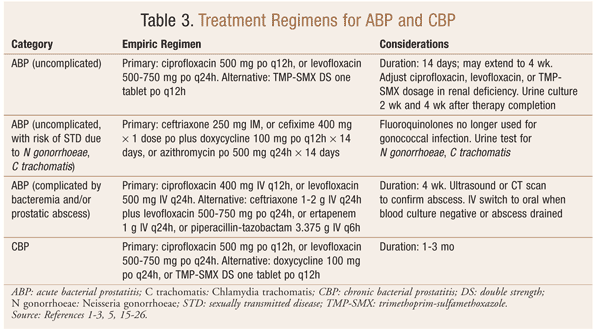Contents
However, like any medication, antibiotics for prostatitis can harm the body, and their uncontrolled intake can lead to a number of complications. To accept them or not is not a personal matter for everyone, but a specific and strict appointment of a doctor with an established diagnosis.
“Before prescribing treatment for chronic prostatitis or its recurrence, a comprehensive examination of the patient is necessary,” says Candidate of Medical Sciences Sergey Tverdokhleb. – The etiology of the disease is different, and only with a confirmed diagnosis of “chronic bacterial prostatitis” can antibiotics be prescribed along with other drugs. But this is not enough: there are many groups of antibacterial drugs, and in order to be sure of the effectiveness of treatment, you first need to establish the type of pathogen, as well as test the body for resistance to one or another type of antibiotics.
Most often, bacteria such as E. coli, Klebsiella, Proteus, Staphylococcus aureus, Corynebacterium, Enterococcus act as pathogens. In addition to bacterial, fungal, parasitic and viral pathogens can occur. Along with nonspecific flora, pathogens of STDs – gonococci, trichomonas, chlamydia, urea- and mycoplasma, etc. can take part in the development of chronic prostatitis.
The infection enters the prostate gland in the following ways:
- urethrogenic – ascending (through the urethra) and descending (when infected urine is thrown from the bladder);
- hematogenous – through the blood;
- lymphogenous – through the lymph.
Can I take antibiotics for prostatitis myself?
Self-medication is a completely wrong approach to your own health. Antibiotics are not vitamins, moreover, vitamins can also harm the body if you take the wrong ones, or in the wrong dosage.
Incorrectly selected antibiotics for prostatitis can bring temporary relief by reducing the overall inflammatory process. But the main danger is that they will provoke the resistance of microorganisms to antibiotic therapy. The pathogenic microbial flora will become more resistant to antibiotics, and it will be much more difficult and time-consuming to treat the inflammatory process caused by it.
First of all, it is necessary to identify the main causative agents of the infection, and then prescribe the etiotropic antibiotic therapy that will affect them. This is done after a series of tests: the secret of the prostate gland, semen, blood is taken. Independently determine which pathogen caused the inflammatory process, not a single person is able. In addition, a mixed infection is possible – the presence of more than 3 microorganisms at a time, and several types of antibiotics will be needed for treatment. Moreover, the cause of prostatitis or its recurrence may not have a bacterial basis, in which case antibiotics are contraindicated.
What antibiotics are effective for prostatitis?
- fluoroquinolones – Ciprofloxacin, Ofloxacin, Lomefloxacin, Levofloxacin;
- macrolides – Erythromycin, Azithromycin, Roxithromycin, Clarithromycin, Josamycin;
- tetracyclines – Tetracycline, Vibramycin, Doxycycline;
- Trimethoprim is a bacteriostatic antibiotic used to prevent and treat diseases of the urinary system.
However, the treatment of chronic prostatitis should be comprehensive and include not only antibiotics. In addition to antibiotics, drug therapy for chronic prostatitis also contains: analgesics and antispasmodics; alpha-1-blockers; plant extracts; drugs that affect blood circulation; prostate protectors; enzyme therapy; immunomodulatory therapy; tranquilizers and antidepressants; vitamins and microelements, as well as physical methods of influence (electrophoresis, magnetotherapy, laser therapy, etc.).
What to do if antibiotics do not help with prostatitis?
The reasons:
- misdiagnosis or test results;
- incorrectly prescribed antibacterial drugs or dosage;
- reinfection – re-infection.
Often, under the guise of chronic prostatitis, completely different pathologies are hidden, therefore, with insufficient examination, there is a risk of suspecting prostatitis as one of the most common diseases in men. It is possible to incorrectly verify the form of prostatitis. In addition to bacterial prostatitis, there is also chronic bacterial prostatitis or chronic pelvic pain syndrome, with or without an inflammatory component.
If there are no signs of inflammation, and the patient continues to complain, he should be examined further – referred to a proctologist, neurologist, and a detailed history taken. Perhaps this is a syndrome of chronic pelvic pain associated with problems in the intestines. Or an intervertebral hernia of the lumbar region with pain radiating to the groin. Lots of options. It can also be an abacterial prostatitis associated with a sedentary lifestyle, lack of regular sex and stagnation of blood in the pelvis, the so-called congestive prostatitis (cognitive). In this case, the treatment should be completely different.
A woman also needs to be examined by a gynecologist for infectious diseases of the urogenital area, if the man is in a couple. Otherwise, if he underwent antibiotic therapy, but his partner did not, reinfection is guaranteed. If a man often changes sexual partners, without using barrier means of protection, you can take antibiotics forever. In this case, the spectrum of pathogenic microflora will constantly change, the risk of sexually transmitted diseases (STDs) is high.
Popular questions and answers
With oral sex, all this can get into the genitourinary tract. Including gonococci, Trichomonas and other STD pathogens. Many people think that it is impossible to get an infectious disease from oral sex, but this is absolutely not the case. On the contrary, everything is possible: from banal herpes to syphilis. Therefore, the best way to protect yourself is to have regular sex life with a trusted partner. Or a condom.
Treatment of chronic prostatitis is a rather long and laborious process, which depends not only on the professionalism of the doctor. The patient is prescribed a complex treatment, it is recommended to adhere to a healthy lifestyle, give up bad habits, and eat right. This approach to therapy will allow you to return the old quality of life, restore erectile function, normalize urination and, perhaps, exacerbation of chronic prostatitis will not happen for many years to come.










